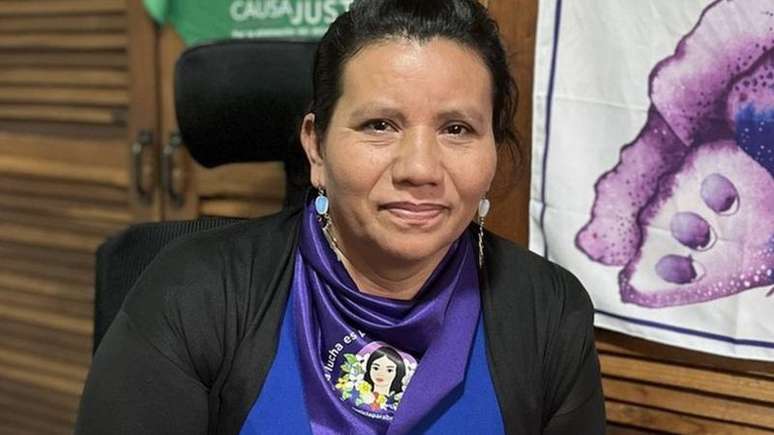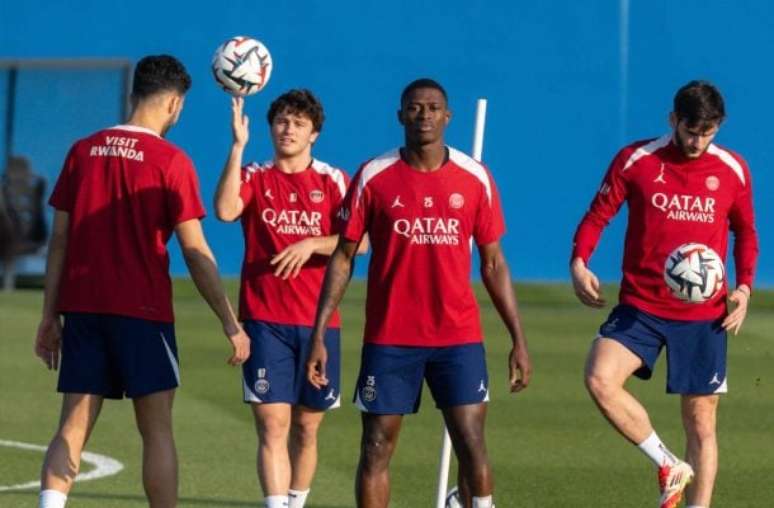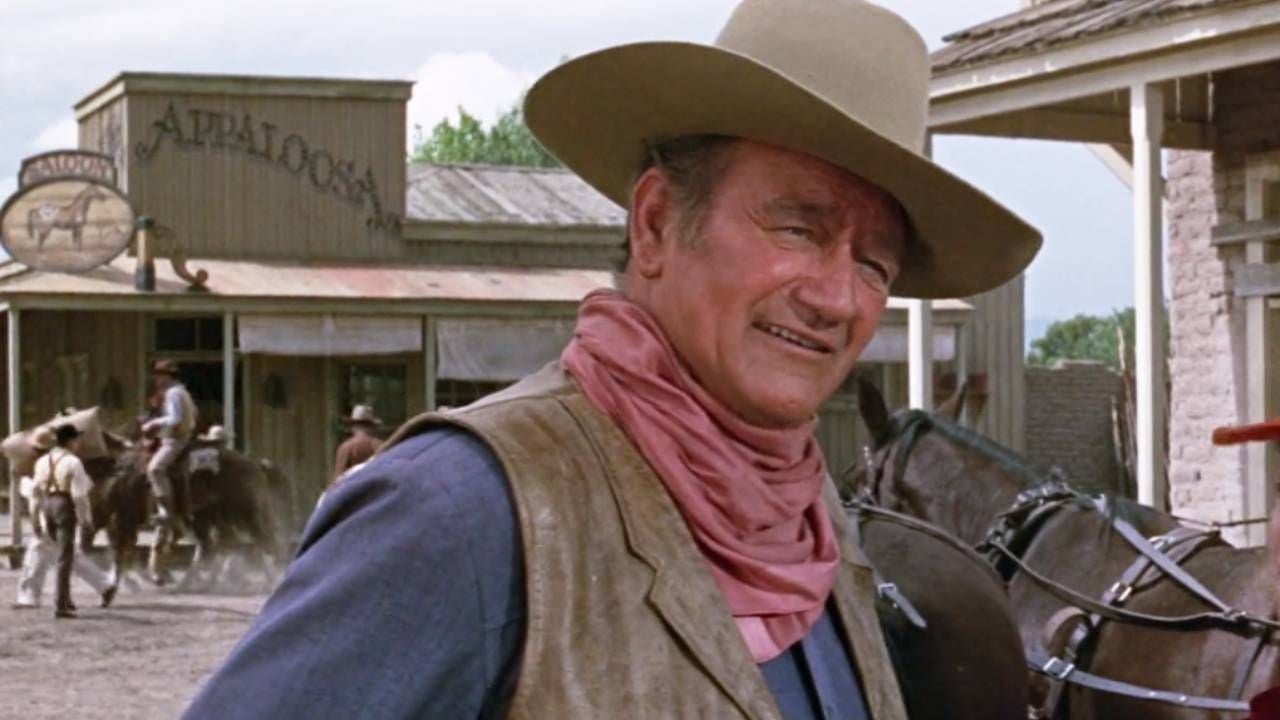The mother testified to her daughter’s story, forced to carry on with an unfeasible pregnancy. The case highlights El Salvador’s strict anti-abortion laws
The Inter-American Court of Human Rights (IDH) condemned this Friday (20/12) El Salvador for obstetric violence in the episode that has become known as the “Beatriz Case”.
The 22-year-old has become a symbol in the country, which has one of the most restrictive anti-abortion laws in the world. El Salvador bans the procedure in all circumstances, with sentences of 30 to 50 years in prison for women accused of aggravated murder.
The case, which began in 2013, was the first related to an abortion refusal heard by the Inter-American Court. However, Friday’s ruling does not mention the right to abortion.
Beatriz suffered from systemic lupus erythematosus, a disease in which the immune system attacks the body’s healthy tissues.
This condition put her life and that of her baby at risk during her first pregnancy. Her son was born prematurely, weighing less than 2 kilos.
A year and a half after the birth of her first child, Beatriz discovered she was pregnant again. She was afraid of facing the same complications that lupus had caused her in her first pregnancy.
Doctors had warned that the fetus suffered from anencephaly: a congenital malformation that prevents the development of the skull and brain, the organ responsible for controlling the body’s functions.
Although Salvadoran laws prohibited the termination of a pregnancy under any circumstances, Beatriz requested authorization to have an abortion at the twelfth week of pregnancy.
The termination of the pregnancy was recommended by a medical commission of 15 experts to save the life of the young woman, who was 22 years old at the time. However, the request was rejected.
The Salvadoran court authorized the caesarean section at the 26th week, when Beatriz’s health was most compromised, but within the legal framework that considered the operation a premature birth and not an abortion. The girl was born by cesarean section and died 5 hours later.
Ten years after this decision, in March 2023, the young girl’s mother, Delmy, attended the first public hearing of the Inter-American Court of Human Rights (IDH Court). On that occasion he gave an interview to BBC News Mundo.
Read the statement below.
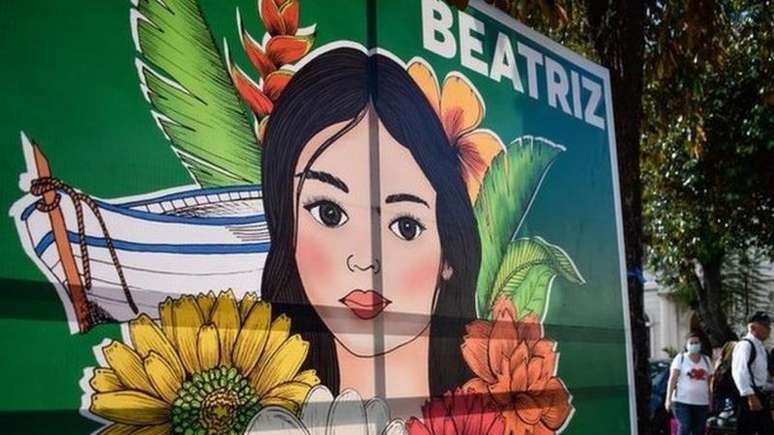
“He wanted to have a child”
The hardest part of Beatriz’s first pregnancy was the preeclampsia. Before going into labor, she received a blood transfusion. When I went to visit her I was shaking from the cold. She was hospitalized with tiredness and breathing difficulties.
The boy was born prematurely, with a very low weight. I still have a t-shirt of his from when he was in the hospital. It’s a very small shirt.
When they delivered the baby to me at the hospital, it fit in the palm of my hand. I didn’t cry.
Beatriz told me that when she saw it she was sorry because it was connected to so many tubes.
We thought he wouldn’t survive.
This was the reason why she did not sterilize herself after the first birth: she thought the baby would not survive. And she wanted to have a child.
Beatriz was never able to breastfeed him. I guess it was due to the strong medicine he was taking. [para tratar o lúpus]. The boy was raised only on formula milk.
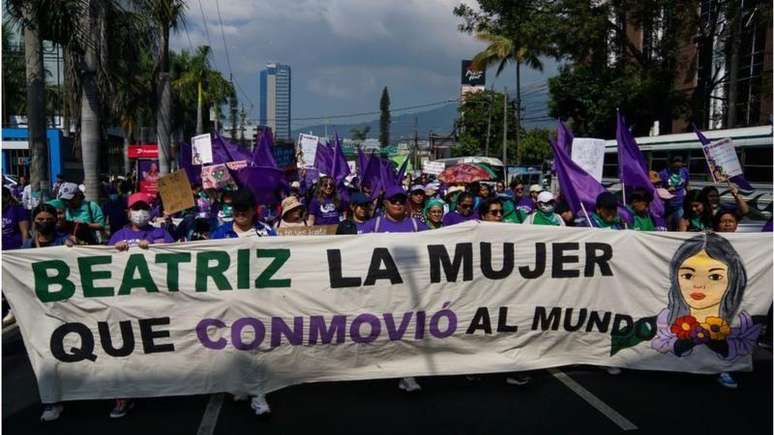
81 days of hospitalization
One day Beatriz woke up with sores on her face, like chickenpox. Blisters formed which burst and released pus and blood. Over time, the lesions spread throughout the body. His hands and feet were covered in wounds.
He couldn’t walk. I would put a cloth to hold with her fingertips and cover her body. It was an unbearable pain.
Beatriz didn’t live with me, she lived with her partner. But when the problem arose, she came to me so I could take her to her appointments.
Tests revealed that she was pregnant. It was a hard blow, because I knew that if I got pregnant again, I would go through a more difficult process than the first one, since my condition was more critical.
We took Beatriz to Rosales hospital. I had to go every day from Usulután to San Salvador, a two-hour bus ride. I left at 6 to arrive at 8. Sometimes they wouldn’t let me in before the visit, at 11 or at midnight.
I tried to get there early because Beatriz couldn’t eat until I arrived: her hands were bandaged due to her injuries.
She also couldn’t go to the bathroom alone and said: “I’m ashamed to ask the nurses for help.”
He also had difficulty eating: he felt pain in his throat and found the hospital food horrible.
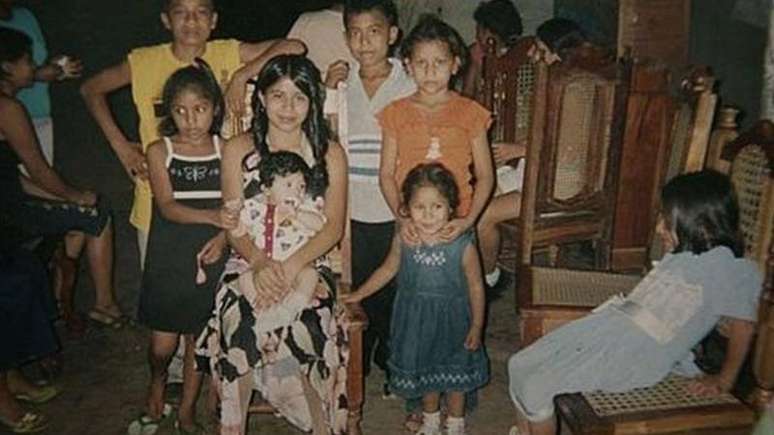
And it was like this every day.
I worked on a dairy farm and my colleagues covered for me to be involved in this process. Beatriz and I were together during visiting hours. When they said: “Come on, let’s go, all the guests out”, I hid and then came back telling Beatriz: “I’m here, I haven’t left yet”.
During her hospitalization at the Rosales hospital, Beatriz cried in pain.
When they transferred her to the maternity hospital, where the whole process took place [da cesariana da segunda gravidez]he said to me, “When are you going to do what you say? I don’t want to be here anymore.”
She was hospitalized for 81 days.
They placed her in a small room, across from the nurses’ station, so cramped she barely fit in her bed. She felt secluded and couldn’t see her first child.
Since her partner took care of the child, she could rarely be with Beatriz. But after leaving hospital, she moved back in with him and they remained together.
She had a cell phone and followed what people said about her. She was discriminated against. They said terrible things, like, “Why open your legs if you were sick?” Disgusting comments.
One day I arrived at the maternity hospital to visit her and she said to me: “Look what they brought me”. It was a trash can [berço] with a blanket. I asked, “What about these people? What do they want?”
They were the ones who opposed it [ao aborto]those who say yes to life. They don’t know the damage they have caused to Beatriz.
At night he called me and said: “I’m desperate. I want this thing to end.” He went into crisis, he felt like he was dying.
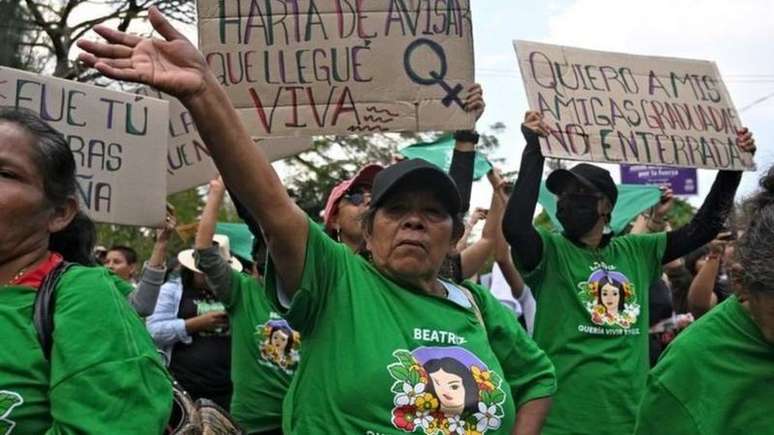
Leilani, the ‘sky girl’
It was very difficult for me to accept that the fetus would not carry the pregnancy to term.
I was with Beatriz in the hospital when they came to tell me they were going to do the caesarean section. They forced my daughter to have a baby without a skull, who died five hours after birth.
I waited outside; the procedure lasted about two or three hours.
In the public [da Corte IDH]they said that Beatriz saw the child. But she didn’t see it. I was the one who saw it.
As soon as they removed the little girl, the doctor asked: “Do you want to see her? But don’t take photos, just look.”
I went there. I kept watching, trying to see if he could move his eyes, but he couldn’t.
I only saw her for a few seconds.
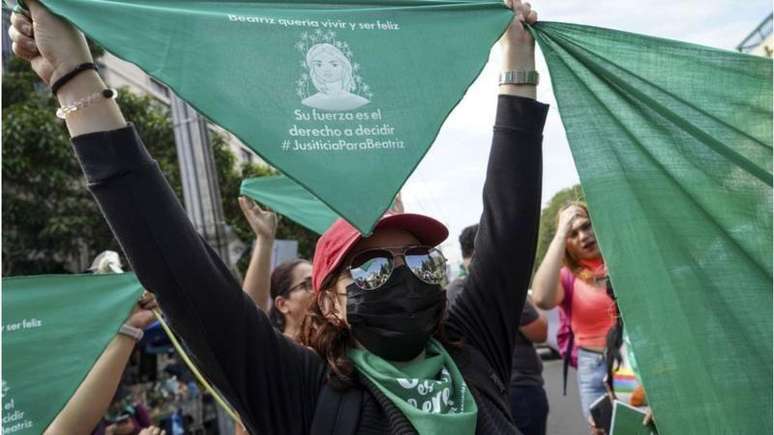
Afterwards I told a nurse what I had seen and she said: ‘These children are born like this, without the possibility of doing anything, because they have no brain.’
He had it here [Delmy aponta o rosto]but behind [toca a parte de trás da cabeça]there was nothing.
Beatriz wanted to give a name and started searching on the Internet until she found Leilani, who [em havaiano] means “girl from heaven”.
Let’s put Leilani Beatriz.
After that Beatriz isolated herself. She became angrier, barely smiling.
We tried to find ways to make her feel better. Her brothers also sang to her, because they liked to sing. «Shut up, guys. I don’t want to hear any noise,” he ordered.
There was an emptiness left in her, but at the same time it was a relief, because she could finally be with her other son, who she wanted to live to take care of.
“You don’t know”
With everything that happened, I got sick. I started having high blood pressure until I exploded. I didn’t want to eat and my partner told me: ‘Eat, otherwise you’ll get sick again’.
My colleagues supported me. I assimilated everything with the help of other people.
Others made comments, neighbors or people who like to draw conclusions.
Even today they ask, “Are you in favor of abortion?” And I say, “You don’t know.”
They say it’s a shame that women shouldn’t do it. Then I posed the case: ‘What if Beatriz was your daughter or your sister?’. Then they fall silent and say nothing more.
The hardest part for me was not giving Beatriz an answer, denying the right she demanded.
Through this whole process, I have learned that it is necessary to fight so that his case does not happen again.
My nephew was five years old when Beatriz died. When she was in the coffin, he touched her and said, “Linda, get up.” He thought he was sleeping.
When we go to the cemetery, say hello to the grave. This is very difficult for us.
He calls me mom, he calls an aunt mom and he also calls his father’s partner mom. Maybe he wanted to call everyone mom because he missed his mother’s affection.
Today he is 11 years old, but he still doesn’t speak well. Does not pronounce words correctly. He studies in his fourth year.
Sometimes he is affectionate, but other times he is irritable.
I want my nephew to grow up as a healthy and strong man, to become a professional. And, as an adult, I want to explain everything Beatriz went through.
I also think of my niece. God knows how he handles things. If he decided that she would not be born, it will be because she is an angel who is now with Beatriz.
* Special envoy to San José, Costa Rica, in March 2023.
Source: Terra
Rose James is a Gossipify movie and series reviewer known for her in-depth analysis and unique perspective on the latest releases. With a background in film studies, she provides engaging and informative reviews, and keeps readers up to date with industry trends and emerging talents.

